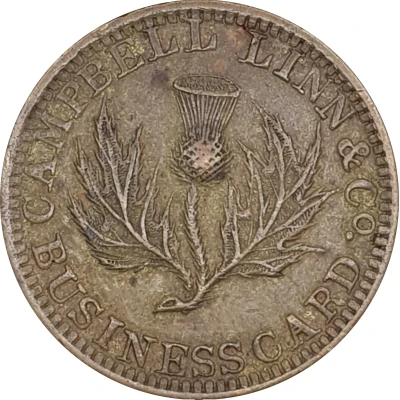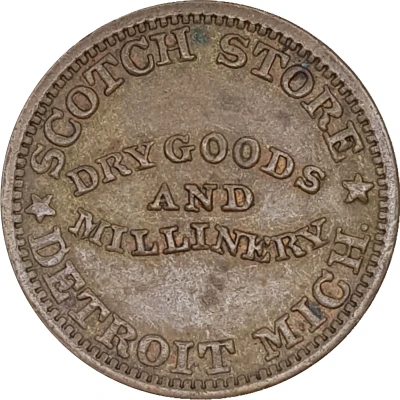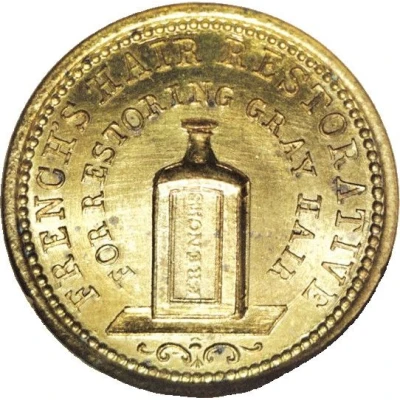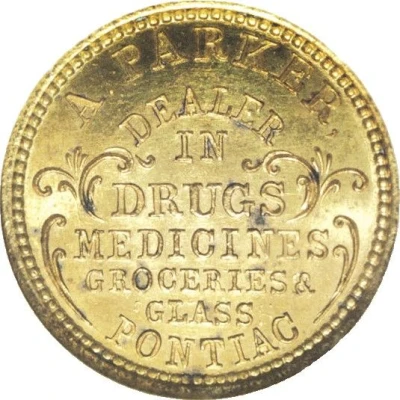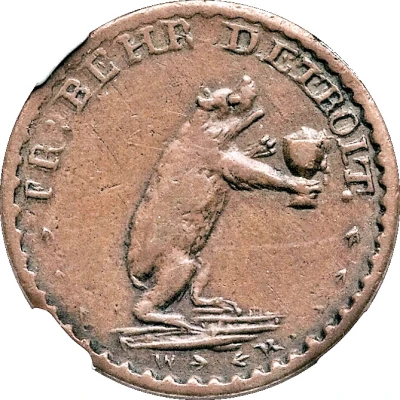
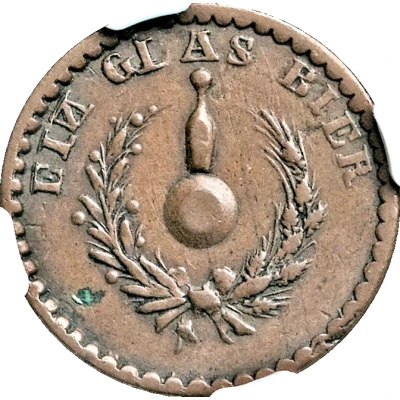

© Heritage Auctions
Civil War Merhant Token - Frederick Behr Detroit MI ND
| Copper | - | 19 mm |
| Location | United States |
|---|---|
| Type | Medals › Advertising medallions |
| Years | 1861-1865 |
| Composition | Copper |
| Diameter | 19 mm |
| Shape | Round |
| Technique | Milled |
| Demonetized | Yes |
| Updated | 2024-11-13 |
| Numista | N#119822 |
|---|---|
| Rarity index | 100% |
Reverse
Wreath made of half holly, half wheat under a bowling ball and pin
Script: Latin
Lettering: EIN GLAS BIER
Comment
(1861-65) Fr. Behr, Detroit, MI, F-225I-1a, R.8, Frederick Behr was the son of Christ and Regina Behr, born in Baden, Germany, and residing with his wife, Mary, in Detroit in 1870. He died in Detroit on November 19, 1879. His death certificate recorded his age as 63 years and 2 months, suggesting that he was born in September 1816.Behr operated a dining saloon and bowling establishment in Detroit. His business appears in different locations at various times. The 1856 edition of the Michigan State Gazetteer and Business Directory places Behr at the corner of Russel and Mullett, and the 1863 edition of the same work gives his address as 75 Griswold. David Perkins, a collector of Detroit tokens, found the following notice in a May 1863 issue of the Detroit Free Press: "F. Behr has sold out his business near the Post Office and will open in a new place, 926 Jefferson Avenue, opposite Miller's garden, May 21." The 1875 edition of the Michigan business directory provides another address, "70 Congress e." An 1877 Detroit city directory gives his address on Congress, noting that he operated a "Wine Hall."
Cliff Temple discussed a minor Civil War era incident involving several Detroit merchants in "The Merchant Unionists of Detroit" that appeared in the Spring 1972 issue of the Journal of the Civil War Token Society. It seems that a group of Southern refugees took up residence in Canada during the Civil War with plans to invade Detroit. With few Union troops available, a number of Detroit merchants created a force known as the "Minutemen" to protect the city. More than 1,000 volunteers successfully protected the city from those Southern forces, mostly Confederate intelligence personnel. Frederick Behr was among the merchants involved in the Unionist movement.
